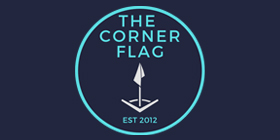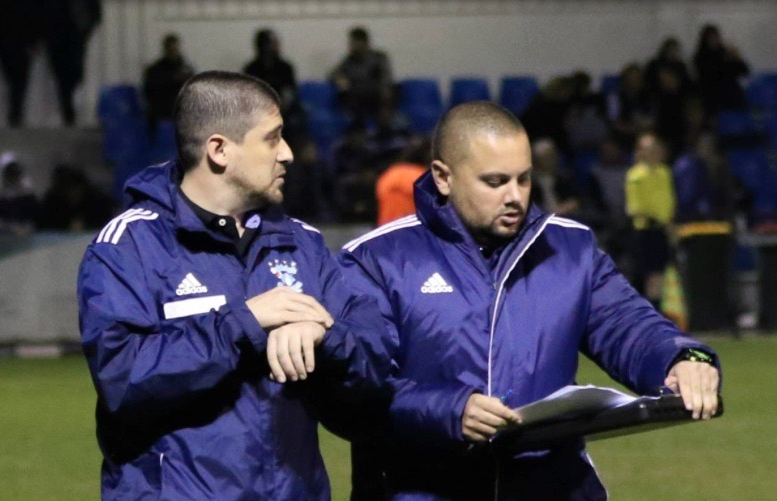The Greek Corner cafe in Oakleigh is an apt setting for my interview with Arthur Papas and Shaun Ontong. Days earlier, the latter was branded a “Greek” so-and-so by a member of the opposition staff while coaching Boroondara Eagles in the Victorian Women’s Premier League. The slur was shrouded in irony, not just because it was factually incorrect – Ontong has South African heritage – but because the perpetrator also works for a Greek club.
At the cafe, Shaun jokes to Arthur that being mistaken for a Greek was almost more offensive than the actual incident. It’s just another day in the weird and wonderful world of football for the duo, whose friendship blossomed during the 2011 Victorian Premier League season, when a 30-year-old Papas – in his first senior managerial role – signed the 23-year-old to play at Jack Edwards Reserve. Since then, the two have experienced Grand Final heartbreak, an Indian odyssey, and a return back to Melbourne together.
This is the story of two of Australia’s most talented young coaches.
Shaun’s beginning
At a time when most of Shaun’s former teammates are in the peak of their playing careers, the now 28-year-old former Young Socceroos captain may be a prime candidate for ‘where are they now?’ A-League trivia questions.
Born in Canberra, the son of former NSL player Paul Ontong played his junior football at Belwest and Belconnen before entering the elite pathway programs, spending one year at the ACTAS and three at the AIS. The right-back was in his third year of the program – as the likes of Robbie Kruse, Matt Spiranovic and Nathan Burns were starting their first – when Ange Postecoglou selected him to captain the Young Socceroos during the 2006 AFC World Cup qualifiers.
“He’s the hardest working player on and off the pitch and all the boys look up to him a bit because of his work ethic and his attitude. He’s been the leader all the way through,” Postecoglou told media at the time.
Both Ontong and Spiranovic then spent time at Nurnberg in the German Bundesliga, where the latter successfully earned a contract. Ontong, who also trialled at other European clubs, returned to Australia after tearing his groin and went about earning an A-League gig after his recovery.
“For me at the time it was that transition between the NSL and A-League, where there was a bit of an unknown of how the A-League was going to unfold, so my ambitions were still all about overseas,” Shaun explains.
“I had a number of trials in Europe and spent a lot of time there but I was unsuccessful in securing a deal, before receiving advice from Ange [Postecoglou] to try to come home because they completed the first year of the A-League and it went well.”
Signed alongside Bruce Djite and Nathan Burns as one of Adelaide United’s three senior Under-20 players for the 2006/07 season, Shaun snapped his ankle just after breaking into the first team. The injury, which he claims was “mismanaged without proper rehabilitation,” effectively ended his time at United. Newcastle Jets’ coach Gary van Egmond offered a lifeline in 2008, but his stint was doomed from the beginning, with scans revealing the youngster immediately required a deltoid ligament reconstruction. Injuries then persisted throughout his entire time on the Hunter Valley.
“Gary van Egmond asked why I was limping when I was training”, he says.
“It’s hard because you go to a new club and you require surgery straight away after basically coming back from a rehab process. Then, in the first game back against Gold Coast, I snapped my achilles tendon. From there it was hard to secure a new contract.”
After a tumultuous two seasons with the Jets, Shaun was released, taking a year off to travel to South Africa for the World Cup and to catch up with family.
Arthur’s beginning
Unlike Shaun, Arthur’s playing career was more modest, but similarly curtailed by injury. After plying his trade in the Victorian state leagues primarily with Westgate and Thomastown, six knee operations by his early 20’s left him “pretty much buckled”. Similar to Jose Mourinho’s career trajectory though, Arthur’s playing pedigree was far surpassed by his eye for management, undertaking his first coaching course at the age of 16.
“I just felt that the coaching we received coming through the system wasn’t working in terms of knowledge,” Arthur explains.
After completing a Degree in Exercise Science and a Masters in Coaching, Arthur gained experience in the Victorian Premier League, most notably as Chris Taylor’s assistant at Melbourne Knights. He also spent time the AIS under the mentorship of Dutch coach Jan Versleijen, with whom he still maintains regular contact.
Oakleigh Cannons
Towards the end of Arthur’s AIS scholarship, Melbourne’s Greek community was abuzz about one of their own up-and-coming coaches. At the same time, Oakleigh Cannons had underperformed in the VPL for two seasons in a row under John Anastasiadis, finishing 7th both years. Club general manager Aki Ionnas and chairman Kon Kavalakis took action, meeting Arthur and offering the opportunity to take over and start with a clean slate at the club.
“We turned over a large portion of the squad, based on making sure the characters that entered the changeroom really wanted to work in a professional manner, were still ambitious, motivated and technically able to carry out the game plan I wanted to instil in the group,” Arthur says.
“But we also moved to change the club culture, moving away from investing directly into players based purely on reputation.”
One of new signings Arthur courted to Jack Edwards Reserve was Shaun Ontong, on the comeback trail after a year out of the game. Despite being in discussions with other VPL clubs, the pair’s first encounter left the latter in no doubt about where he’d play that year.
“I was looking at coming back, and I knew if I couldn’t do it through the A-League, the next best chance to return to that level was through the VPL,” Shaun recalls.
“I was talking to a few clubs, but I remember Arthur came and picked me up from my place in Melbourne, where I was staying with my cousins. We went to Chadstone Shopping Centre, and basically the first part of the conversation was just talking about me as a person and what I’m doing and what I want to do.
“For me it was a really strange experience, because up until then every coach that I had, everything was about football and when I was going to play. I was taken aback.
“Eventually it did go into the football side. We went and bought a diary and worked out a plan of how I was going to back to playing after all the injuries, an actual process and a plan of how to be going back to play.
“I was still in talks with other clubs at the time, but when the conversation finished I called my dad and said I knew where I was going to go. I’d never seen Arthur work before in a coaching sense, but I just knew that as a person he genuinely cared about what I was doing.
“The first session I did, the first half an hour Arthur pulled me out and said that was enough. In all the years I played, I never had a coach pull me out of a session saying that was enough. It was always about going harder and harder. Arthur was about sticking to the goal we set rather than just getting right for the first round.”
The season was a success from both a personal and club perspective. Shaun finally strung together semi-regular game time for the first time in years, while Arthur guided Oakleigh to their first ever VPL grand final, becoming the youngest manager to ever win Coach of the Year in the process.
“Even though I suffered that season it was one of the most enjoyable because I got myself into a place where I could play again and enjoy the environment created,” Shaun says.
“I thought it’d be such a huge drop in the state leagues in terms of professionalism and coaching styles, but in some ways it was more professional than the other clubs I’d been at. It’s a common theme for players that have played under Arthur to say that.”
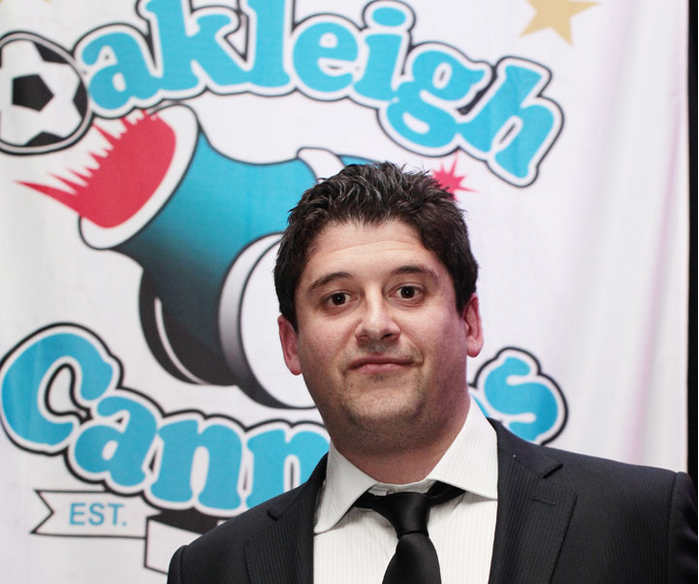
Newcastle Jets – Arthur
Despite proving himself capable of leading a club – consisting of some players older than him – to a grand final at just 30 years of age, life wasn’t necessarily a coaching fairytale for Arthur, whose achievements didn’t suddenly attract a plethora of opportunities at higher levels. One admirer was Newcastle Jets coach Gary van Egmond, who had previously seen him in action at the AIS and subsequently offered Arthur a role as first team assistant and head coach of the club’s National Youth League side.
“I don’t particularly have a strong network around me. Irrespective of what you’ve done, every door still has to be broken down,” Arthur says.
“The beauty of Newcastle was I had worked with Gary van Egmond at the AIS, who knew my work and my character. It was a much more senior role than Heart who has been great to me, and I really enjoyed working with the first team in Newcastle. However, I found the challenge of Oakleigh [the cutthroat environment of senior management] more challenging than working with the Jets.”
During his time on the Hunter Valley, Arthur coached a number of talented up-and-coming youth players – including Jacob Pepper, Andrew Hoole, Jack Duncan and James Virgili – who went on to forge senior careers. Despite a desire to stay longer, ownership issues – persistent to this day – led to unfavourable arrangements and Arthur felt it was time to move on.
India
After finishing the 2011/12 season, Arthur was encouraged by former FFA Technical Director Rob Baan, now at the Indian federation, to work with the country’s Olympic team. While the move required a cultural and footballing adjustment in a developing nation, it also presented a chance to enhance his reputation abroad.
“When you’re 32 and given the opportunity to coach an Olympic team, it doesn’t matter what country ranking it is, when you’re competing in the AFC qualifiers and up against the UAE & Iraq, it’s a an experience and challenge that you want to take on,” Arthur says.
“I was coaching players that went on to play for the senior national team, and was able to keep a youth team [Pailan Arrows] from getting relegated in a league with mature men and foreigners. It was a great coaching experience albeit with very limited resources, before being given the opportunity to stay a lot longer.”
That offer came from former league powerhouses Dempo FC, who were impressed by Arthur’s results and resourcefulness in a foreign league, where he was nominated again for Coach of the Year accolades. With the challenge to lead a club to continental competitions, he accepted the opportunity.
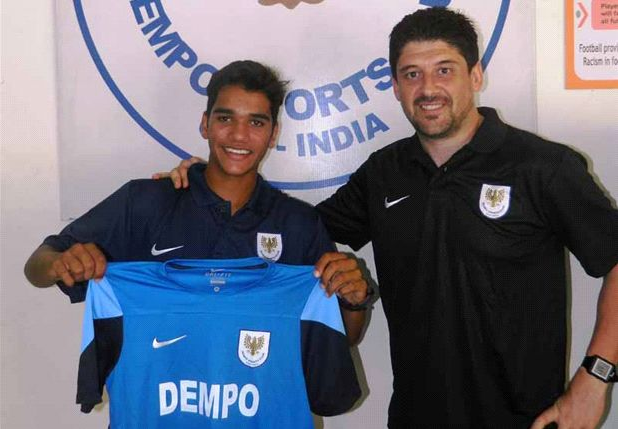
Back in Australia, Shaun was retired as a player and seeking coaching experience at a club level. He left Oakleigh at the same time as Arthur, acknowledging his body could not handle the rigours of football anymore. After taking up muay thai boxing in Thailand, the itch to get back into football became too strong, and Shaun returned to Canberra to establish a youth academy with former youth prodigy, Kaz Patafta.
“Football has a funny way of bringing you back,” Shaun says.
By also keeping in touch with Arthur, he was recommended a position at the Maribyrnong Sports Academy in Melbourne, where his former coach was overseeing the program from afar. By developing his analytical and technological skills, the next step was to gain practical experience in a gameday sense. With Shaun looking to learn in a club environment, and Arthur requiring an assistant at Dempo, the coaching partnership was born.
“Shaun was one player, from an intelligence point of view, who was a good challenge to work with. In terms of characters, he’s one of the best I’ve come across. You don’t captain your country at Under-20 level unless you’ve got some pretty special qualities as a leader,” Arthur says.
“Seeing him work at the school, seeing how he was developing I was impressed within a little time how he fast-tracked himself, he was very good with the technology side of things, and that’s how the opportunity came to coach in India.”
Dempo was a historically successful club, winning three I-League titles and two Indian Super Cups between 2007 and 2012. But with the board cutting back on spending, and the CEO banned by FIFA from any football activity, Arthur’s objectives became more difficult to achieve. He still improved the club’s results from the previous season, finishing fourth and reaching the final of the Federation Cup. Alarm bells began ringing after qualifying for the AFC Cup, as the board withdrew the team from the competition, unwilling to fund its participation. Following further cuts to investment, Arthur resigned within the first few rounds of the 2015 season, despite having 18 months left on his contract. Consequently, only a month after participating in the nation’s biggest club Cup final, Dempo were relegated from the league.
“The writing was on the wall. The things you had to deal with there just to get players training on the park,” Arthur reveals.
“It got to the stage where I offered to resign on three separate occasions prior but it was not accepted. When it was finally accepted, it had reached a stage internally where I was asked to write my own press release for the club, because the club was so under-resourced.”
The silver lining for Arthur was being able to complete his AFC Pro License, with the aim of travelling to Japan or Europe to further his education and practical experience after completing his stint on the sub-continent.
“Completing my Pro License was a goal of mine before returning home. However, a license is just a piece of paper at the end of the day unless you have the capacity to apply what you learn in the correct setting. The experience you get from literally making a decision that defines the week, you can’t be taught that in the license. That’s the beauty of going and getting practical experience,” Arthur says.
“Three years out of your life in a third world country tests your resolve. After the second year I was questioning how much I loved what I was doing. The original plan was to stay six months and I was thinking if I stay six months I’ve done super well. To know you got to three years and left on your own terms is satisfying, but nothing I want to replicate again in the near future.”
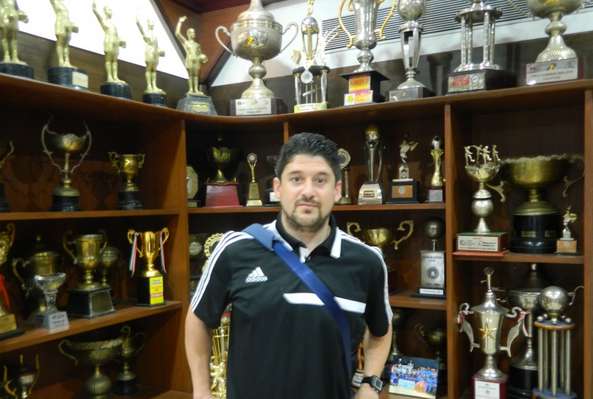
On the flipside, working in India was overwhelmingly positive for Shaun, who admits to learning more from Arthur than any of his previous mentors, gaining the knowledge and confidence to increase his involvement in senior management.
“It was one of the best experiences I’ve had to date. I had different challenges obviously, in that my boss was Arthur, while Arthur’s boss was the chairman,” Shaun says.
“But every day was about learning and getting to wake up and go to this environment Arthur created. Despite what he had to deal with, he still created an atmosphere where, after I got close with some of the players, they revealed how much they loved coming to training and just working.”
“He was doing things over there that I’d never seen before playing under a lot of coaches, there were times where I’d be so confused about a formation or tactic but at the end of the session it became common sense as to why we were approaching a game a certain way. I realised as a player I knew nothing.”
Back to the future
With Arthur and Shaun returning to Melbourne on the same flight, the priority was to take a break from everything and recharge the batteries. But there was to be no rest for the wicked, as both in-demand coaches were immediately thrust back into the managerial spotlight in Victoria.
Over at Jack Edwards Reserve, the club that helped launched Arthur’s senior coaching career was dangling in the relegation zone, with only one win in eight games, struggling to replicate its runner up effort in 2014. With coach Miron Bleiberg unable to continue as head coach, the S.O.S went out to Arthur to return to the Oakleigh Cannons.
“I wanted to take a longer break but Oakleigh came along and I wanted to see if I could help out and make a decision later on,” Arthur says.
“The dynamics are completely different to 2011. When you’re not in the setup stage of the first four weeks of when a group comes together and where habits are developed, it has a bearing on the standards which are established. Results tell you it wasn’t a very productive environment, but I considered it a new challenge, and after speaking with Miron was confident the group had the desire to turn it around”
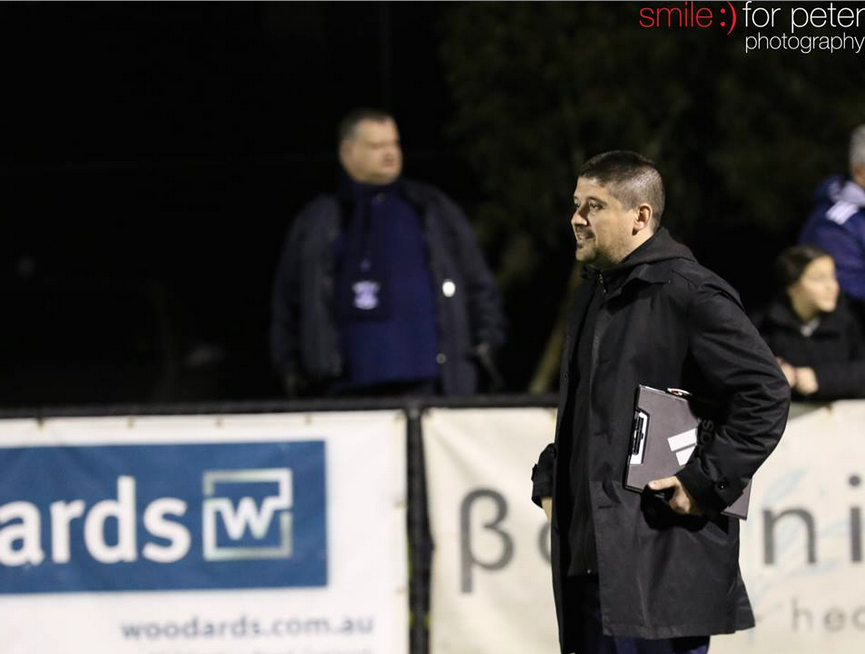
Whilst results significantly improved under Arthur, the season has still been a mixed bag for Oakleigh. The club hasn’t been able to propel itself into finals contention, but will safely live to fight on in the NPL in 2016, achieving the aim the board set to Arthur upon his return. Silverware is still a possibility via the Dockerty Cup final, while an FFA Cup foray gets underway in August.
Shaun remains Arthur’s assistant, albeit in a reduced capacity, due to his own senior managerial debut. In the Women’s Premier League, Boroondara Eagles were backing up their 2014 semi-final finish under Fil Simao with a stuttering start to the 2015 season, taking four points from the opening three games. Simao, having to step aside due to increased work commitment, left the club on the lookout for a new coach. With the Eagles’ technical director, Manny Kotroulis, having previous ties with Arthur and Shaun via the Maribyrnong Sports Academy, he offered the latter to test out his newly acquired knowledge by leading his own team on the pitch.
“It was all about timing. I never worked in the women’s game before but had a chat to Arthur and Manny and under his advice saw it a good opportunity to at least put into practice everything I had just learnt,” Shaun said.
“Things have been going very well since. I’m still able to bounce ideas off Arthur, but I enjoy the responsibility of planning each week and how you go about preparing for each game.”
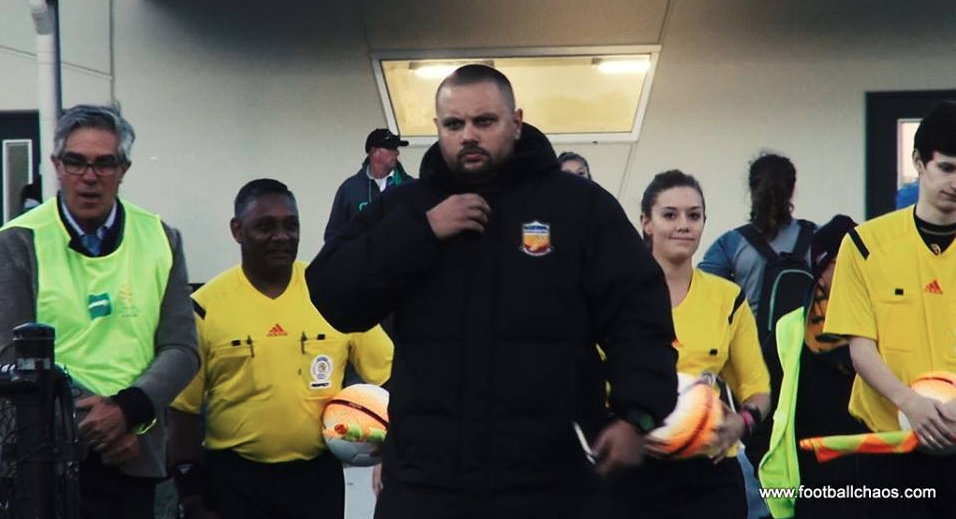
The club has been on a barnstorming run since Shaun’s arrival, going almost 20 games unbeaten to be on the brink of a season double, topping the WPL table and making the Team App Cup final. In a show of loyalty, Arthur can be found at many Eagles games supporting his former apprentice and now colleague. In a reverse show of solidarity, Shaun, unable to obtain a suitably sized Boroondara jacket, often wears his Oakleigh Cannons kit to WPL games.
***
With questions about the pair’s opinions on the state of the game in Australia left to another day, and Arthur refusing to be drawn into discussions about why an A-League club hasn’t come calling for his services again, Shaun offers the following insight about the nature of coaching recruitment in Australia: “I’ve worked under a lot of coaches, yet I had to go to state level to find the best coach I’ve worked under.”
As the conversation moves towards future plans, neither can paint a conclusive picture. They’re both busy enough at their respective clubs, the Maribyrnong Sports Academy, and have also joined forces with some of Victoria’s best known coaches – Chris Taylor, Aaron Symons and Huss Skenderovic – to establish the Australian College of Sport, a high performance training and formal education institution providing a pathway for youth footballers in a full time environment. Any previous plans to seek overseas experience are now on hold.
“I’ve said to Arthur, any chance I get to work with him at any level is what it’s about for me,” Shaun says.
“It’s important to have that professional and personal respect [with Shaun], he has many great characteristics which will help him along his coaching journey. Myself, I’ll just enjoy my coaching and see where it takes me. You can always educate yourself further, no matter how much you think you know, and every experience offers that ability to improve,” Arthur adds.
Perhaps the uncertainty is not surprising. Just over five years ago, Arthur probably wouldn’t have imagined spending three seasons coaching in India, Shaun may not have fathomed succumbing to injury at such a young age, and neither would have expected to cross paths or forge such a strong bond so early in their careers. But that’s just the rollercoaster nature of football, a ride that doesn’t seem like slowing down anytime soon for Arthur Papas and Shaun Ontong.
